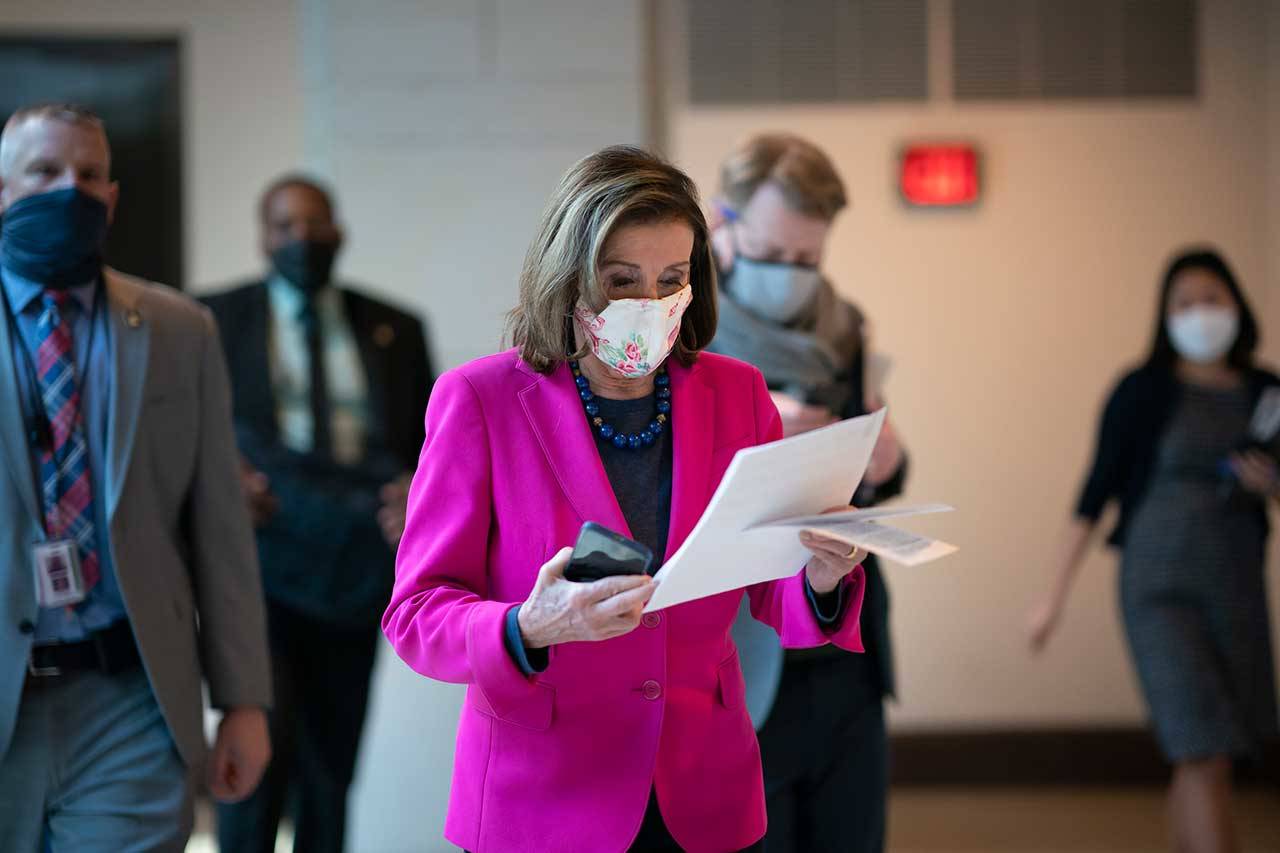WASHINGTON — The House has passed legislation that would create about 1.5 million acres of new wilderness and incorporate nearly 1,200 miles of waterways into the National Wild and Scenic Rivers System as Democrats move to protect more public lands — with President Joe Biden’s blessing.
The Protecting America’s Wilderness and Public Lands Act package passed by a vote of 227-200 on Friday, with votes mostly along party lines; eight Republicans joined all but one Democratic lawmaker in voting for the bill.
It now moves to the Senate, where it faces an uncertain future in the 50-50 Senate. Support from at least 10 Republicans would be needed to overcome a filibuster.
Biden has set a goal of conserving at least 30 percent of U.S. lands and ocean by 2030, a move that supporters say will help curb global warming while preserving some of the nation’s most scenic lands for future generations of Americans to enjoy.
Republicans said the wilderness area designations would restrict use of those lands and make them more susceptible to catastrophic forest fires.
Lands designated as wilderness receive the government’s highest level of protection and are generally off-limits to motorized vehicles with allowed activities focused on recreation such as hiking, camping and horseback riding.
The legislation is largely a collection of eight bills that the House approved last year on two occasions but which did not make it into law. It is one of the largest land-protection packages Congress has ever considered and covers almost 3 million acres of public lands, overwhelmingly in Colorado, California, Washington and Arizona.
“Not only will it help protect the air we breathe and the water that we drink, but also the wildlife that call these untouched areas home,” said Rep. Diana DeGette, D-Colo., the bill’s lead sponsor.
One of the provisions in the bill would permanently withdraw more than 1 million acres of federal land north and south of the Grand Canyon National Park from eligibility for any future mining claims but leaves valid, existing claims intact. Proponents of the withdrawal say uranium deposits in northern Arizona should not be mined for fear of contaminating the Grand Canyon.
Republican lawmakers portrayed the bill as a job killer in rural communities because the new wilderness restrictions would mean a ban on logging and mining and motorized vehicles.
They said that forgoing access to critical minerals makes the U.S. more reliant on other countries such as China to meet its economic and defense needs.
“I would challenge my colleagues to enjoy those scenes and those vistas. I encourage them to take pictures, so they can show their children and grandchildren what they looked like before they locked them away in a wilderness area,” said Rep. Bruce Westerman, R-Ark.
The ideological split over the bill was evident as the congressional delegation from Colorado debated the measure on the House floor. The legislation encompassed bills from Rep. Joe Neguse and DeGette that would affect more than 1 million acres of public lands in the state.
“At the end of the day, we have an obligation to leave our environment better than we found it. That’s what this bill is all about,” Neguse said.
But Rep. Lauren Boebert, R-Colo., said the bill “targets” her district and was opposed by the Colorado Farm Bureau and numerous local officials “because of the damage they know that it will cause and the activities it will prevent.”
Rep. Doug Lamborn, R-Colo., said he knew the intent of supporters was to protect the land, but in practice, the wilderness designation is too restrictive, preventing people from even using bicycles or strollers.
“I prefer public lands with many uses,” he said.
He also voiced concerns that the greater land use restrictions would halt forest-management practices that can reduce fire risks, though supporters of the bill say the secretary of agriculture has the authority in wilderness areas to take measures necessary to control fire, insects and disease.
“We are going to see bigger and hotter fires in Colorado than ever before,” Lamborn predicted.
The lone dissenter among Democrats was Rep. Vicente Gonzalez of Texas.

